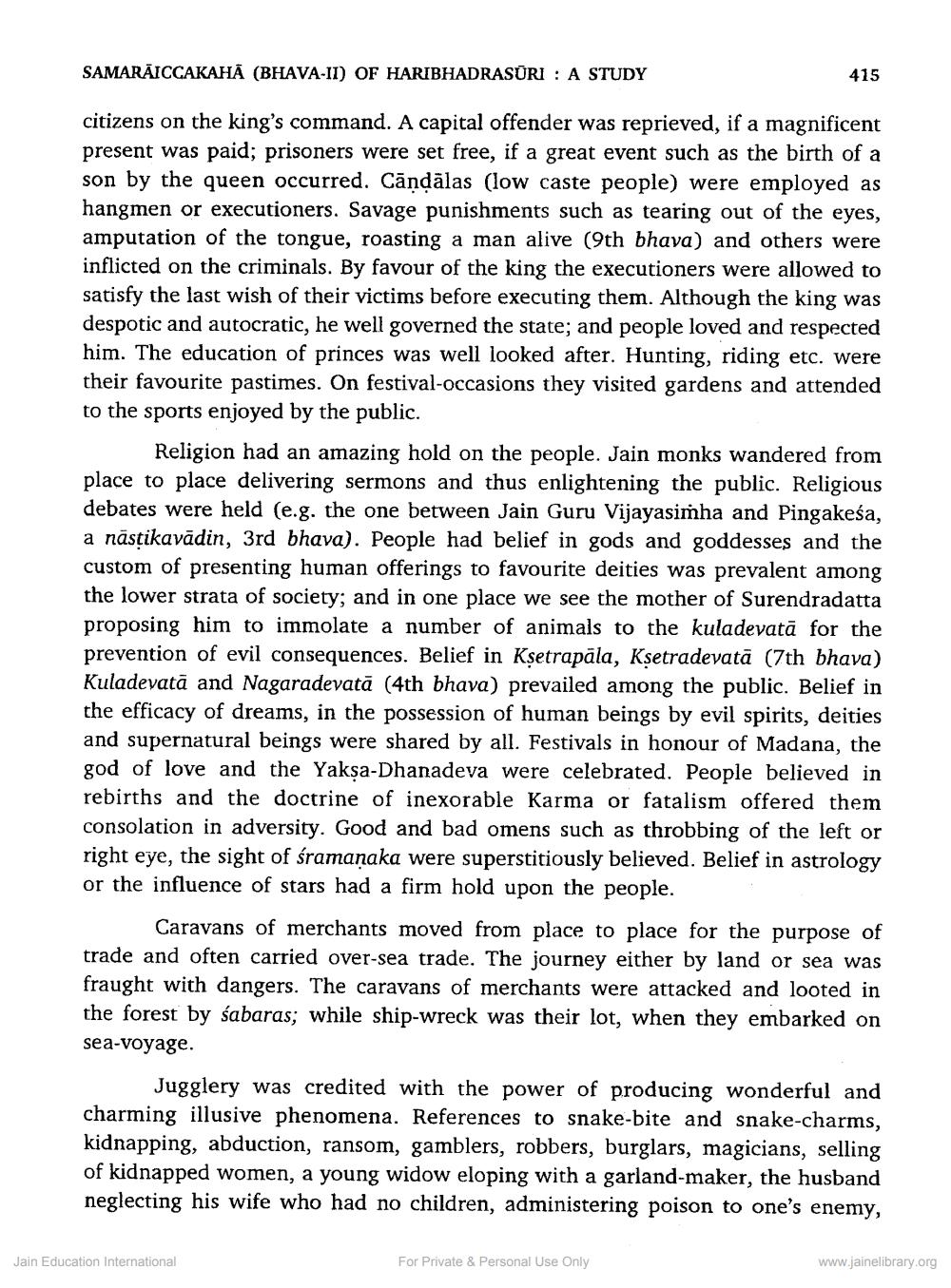________________ SAMARAICCAKAHA (BHAVA-II) OF HARIBHADRASURI : A STUDY 415 citizens on the king's command. A capital offender was reprieved, if a magnificent present was paid; prisoners were set free, if a great event such as the birth of a son by the queen occurred. Candalas (low caste people) were employed as hangmen or executioners. Savage punishments such as tearing out of the eyes, amputation of the tongue, roasting a man alive (9th bhava) and others were inflicted on the criminals. By favour of the king the executioners were allowed to satisfy the last wish of their victims before executing them. Although the king was despotic and autocratic, he well governed the state; and people loved and respected him. The education of princes was well looked after. Hunting, riding etc. were their favourite pastimes. On festival-occasions they visited gardens and attended to the sports enjoyed by the public. Religion had an amazing hold on the people. Jain monks wandered from place to place delivering sermons and thus enlightening the public. Religious debates were held (e.g. the one between Jain Guru Vijayasimha and Pingakesa, a nastikavadin, 3rd bhava). People had belief in gods and goddesses and the custom of presenting human offerings to favourite deities was prevalent among the lower strata of society; and in one place we see the mother of Surendradatta proposing him to immolate a number of animals to the kuladevata for the prevention of evil consequences. Belief in Ksetrapala, Ksetradevata (7th bhava) Kuladevata and Nagaradevata (4th bhava) prevailed among the public. Belief in the efficacy of dreams, in the possession of human beings by evil spirits, deities and supernatural beings were shared by all. Festivals in honour of Madana, the god of love and the Yaksa-Dhanadeva were celebrated. People believed in rebirths and the doctrine of inexorable Karma or fatalism offered them consolation in adversity. Good and bad omens such as throbbing of the left or right eye, the sight of sramanaka were superstitiously believed. Belief in astrology or the influence of stars had a firm hold upon the people. Caravans of merchants moved from place to place for the purpose of trade and often carried over-sea trade. The journey either by land or sea was fraught with dangers. The caravans of merchants were attacked and looted in the forest by sabaras; while ship-wreck was their lot, when they embarked on sea-voyage. Jugglery was credited with the power of producing wonderful and charming illusive phenomena. References to snake bite and snake-charms, kidnapping, abduction, ransom, gamblers, robbers, burglars, magicians, selling of kidnapped women, a young widow eloping with a garland-maker, the husband neglecting his wife who had no children, administering poison to one's enemy, Jain Education International For Private & Personal Use Only www.jainelibrary.org




